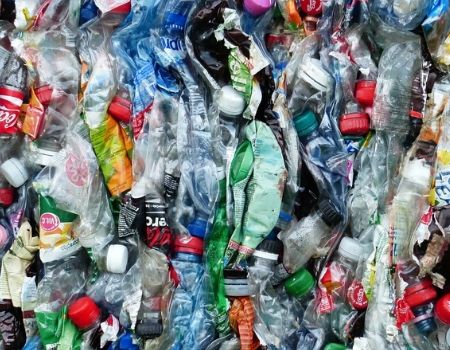
Speaking to Bio Market Insights, Julia Vol, director of public affairs from flexible compostable packaging company TIPA (@TIPACorp), said: “At the moment politicians are under a lot of pressure from the fossil fuel industry that is losing money every day to setback regulation on single-use plastic under the excuse of fighting the virus. However, we cannot try to solve one problem by creating another. We would like to encourage decision-makers to ask why do we need to revert the ban on items such as straws, plastic cotton buds and stirrers, what purpose does it serve in the fight against the virus?”
Vol’s comments come at a time when the UK’s Department for Environment, Food and Rural Affairs (Defra) recently announced that it would be postponing a ban on plastic straws, stirrers and cotton buds in England until October, owing to the impact of the Coronavirus outbreak on firms. It said the move to delay the ban, which was originally due to come into force this month, was to avoid extra burdens for firms already under pressure as a result of the pandemic.
Vol maintained that the plastic industry could potentially use Covid-19 to exploit people’s fears around sanitation and hygiene to interfere with legislation banning or regulating the use of single-use plastics. With the oil price being at historic lows, and the public attention is being understandably distracted, the conventional plastic industry is fighting to push demand up in whatever means they can.
“This could lead the plastic industry to spread a lot of misinformation and exploit Covid-19 to attack non-conventional plastic packaging. They may also promote messaging about the need for more conventional plastic packaging and plastic use,” she said.
In general, while people have been advised to keep activities such as food shopping to a bare minimum, supermarkets remain one of the few places still open during the Coronavirus outbreak.
As notoriously busy places that are filled with products touched by a number of people, consumers have become increasingly concerned about the risk of exposure to the virus while doing their shopping, with many taking precautions such as wearing gloves and face masks and not buying single food items without plastic packaging around them.
Vol said: “Unfortunately, the current crisis has really put a strain on the reduce and reuse solutions due to health, hygiene and safety concerns. The increase in single-use plastic is evident not only in medical use but also in the food industry, and we already see a massive push from the conventional plastic industry to lift up the single-use plastic ban”.
Rolling back the clock
As a result of the crisis, some shoppers have become so concerned with coming into contact with other shoppers and their possessions, including reusable shopping bags.
So much so, that some places around the globe, including San Francisco, have chosen to ban reusable bags altogether in an attempt to protect both customers and supermarket employees from spreading the virus.
The UK government recently dropped the 5p plastic bag charge for online deliveries to speed up food distribution during the Covid-19 coronavirus outbreak. The plastic bag charge was introduced in England in October 2015 to reduce plastic waste.
Vol questioned: “While some single-use plastic use is unavoidable due to the health and safety concerns, we shouldn’t lose on the many achievements we’ve had in fighting the plastic crisis. Luckily, we have come a long way in our battle against the plastic pollution both in terms of raw materials and end-of-life solutions and the question is will we manage to leverage these advantages to ensure that the current crisis and the (hopefully temporary) need for single-use plastic will not have negative environmental consequences, which in turn will too have may damage our health.
But can consumer’s behaviours change when they are still confused over terms such as biodegradability and compostability? Vol seems to think so. She said: “It is tremendous to see how people can adapt and change their behaviour once they feel the urgency – when the crisis first started in the Western world, officials and governments started to promote the hard facts. They said ‘you need to stay at home to prevent the spread of the disease’, amongst other things. People immediately started to change their behaviour overnight. It is amazing how we all started bowing to each other instead of shaking hands and stopped hugging each other, which is intrinsic to human behaviour.
“This shows that clear and fact-based information can work and change people’s behaviour. Of course, right now, we are in the midst of a crisis, but if you look at the long-term impacts of plastic packaging on our health, I am not sure the effects are much less severe than the coronavirus one. This is because plastic particles go into our food, soil and water supply. The long-term impacts could be as severe as this current crisis and we need to create more urgency and fact-based messaging to drive behaviour change to address the plastic crisis too.
Looking forward, Vol said she is optimistic about the future, with more and more firms pumping money into sustainable research and development, promoting alternative packaging solutions and sustainable solutions and encouraging their consumers to make the right choices.




